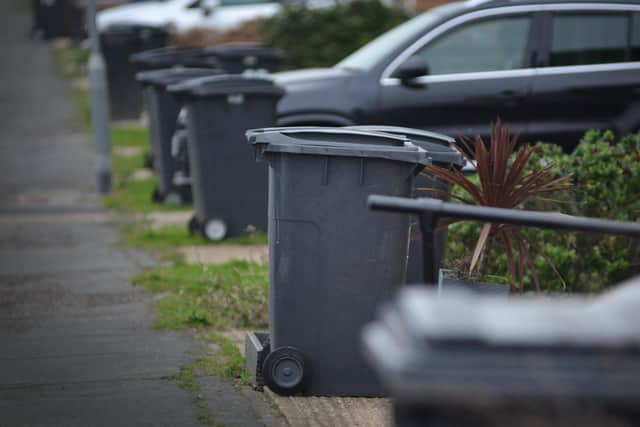'Bespoke solution's to reduce emissions of East Sussex bin collection vehicles
and live on Freeview channel 276
On Friday (July 1), representatives of the three councils forming the East Sussex Joint Waste Partnership — made up of Hastings Borough Council, Rother District Council and Wealden District Council — received an update on its long-running decarbonisation project.
As part of this, councillors heard about recently-completed trials into the use of both electric vehicles and Hydrotreated Vegetable Oil (HVO) — a bio-based fuel which can be used in conventional diesel engines.
Advertisement
Hide AdAdvertisement
Hide AdThese trials found that both technologies could feasibly be employed by the partnership’s joint waste contractor Biffa, albeit not across the whole contract area in the case of electric vehicles.


As a result, councillors were advised that there is unlikely to be a ‘one size fits all’ solution for all three and it may be more appropriate for each of the three councils to look into securing ‘bespoke’ packages going forwards.
In practice, this could see the three councils move at their own pace in moving to lower emissions vehicles and in different ways. For example, electric vehicles would be more practical for use in Hastings, while its largely rural counterparts could focus on using HVO fuels.
While the results of the trials were welcomed, some councillors expressed concerns about the length of time the project would take.
Advertisement
Hide AdAdvertisement
Hide AdCllr Paul Barnett, Labour leader of Hastings Borough Council, said: “It is really good to see we have now got some evidence to take this work forwards.
“On the other hand it has taken two years to get that evidence and my concern, obviously, is that if we carry on at that pace it may be another few years before we see any real change on the ground.
“When we talk about momentum, can we try and think about pace as well as part of that and whether there are ways in which we can collectively move forward faster as well as on an individual authority basis.”
Cllr Barnett went on to argue that the partnership should look into universally adopting HVO fuel as a way to reduce emissions.
Advertisement
Hide AdAdvertisement
Hide AdOfficers said the contract would not be able to make this change rapidly (partially because of the expected cost increase compared to standard diesel), but that it could be a priority for working groups taking the project forwards.
Councillors also heard how the partnership had also looked into the feasibility of replacing a number of diesel vans used by Biffa’s supervisors with new electric vehicles. It was concluded that this should not be done for the time being as the costs and challenges would currently outweigh the benefits.
These benefits, councillors heard, would be relatively minor as such vehicles only account for a small portion of carbon emissions compared to the larger waste collection vehicles which make up the bulk of the fleet.
By way of comparison, the bin lorries account for between 80 to 97 per cent of the total CO2 emissions of the waste services Biffa provides to each council.